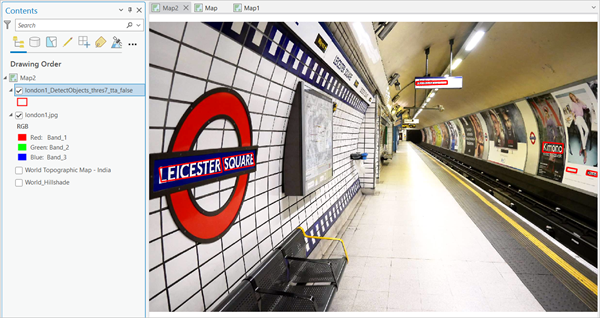
Text is prevalent in natural scenes around us in the form of road signs, billboards, house numbers and place names. Text labels are also an integral part of cadastral maps and floor plans. Extracting this text can provide additional context and details about the places the text describes and the information it conveys.
This deep learning model is based on the PaddleOCR model and uses optical character recognition (OCR) technology to detect text in images. This model was trained on a large dataset of different types and styles of text with diverse background and contexts, allowing for precise text extraction. It can be applied to various tasks such as automatically detecting and reading text from billboards, sign boards, scanned maps, etc., thereby converting images containing text to actionable data.
Model details
This model has the following characteristics:
- Input—High-resolution, three-band street-level imagery or oriented imagery with medium-to-large size text.
- Output—A feature layer with boxes bounding the text detected in the input image.
- Compute—This model would run only on a CPU.
- Architecture—The Scene text parsing model is a wrapper for the pretrained text recognition PaddleOCR model based on the paper titled PP-OCR: A Practical Ultra Lightweight OCR System. More information about the model architecture and the training data used for the model can be found in the paper.
Access and download the model
Download the Scene Text parsing pretrained model from ArcGIS Living Atlas of the World. Alternatively, access the model directly from ArcGIS Pro, or consume it in ArcGIS Online using Professional or Professional Plus user type.
- Browse to ArcGIS Living Atlas of the World.
- Sign in with your ArcGIS Online credentials.
- Search for Scene Text Parsing and open the item page from the search results.
- Click the Download button to download the model.You can use the downloaded .dlpk file directly in ArcGIS Pro, or upload and use it in ArcGIS Enterprise.
Release notes
The following are the release notes:
| Date | Description |
|---|---|
| March 2022 |
|